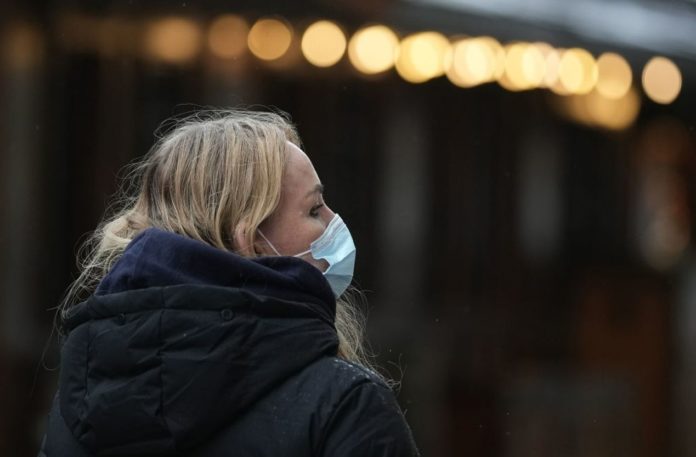An article released on the BiorXiv website presents the first in vivo evidence that adipose tissue is associated with SARS-CoV-2 infection, which may explain the association between obesity and severe Covid-19 infection.
Since the beginning of the Covid-19 epidemic, obese people have been one of the groups most vulnerable to infection caused by the SARS-CoV-2 coronavirus. Patients who were overweight or obese were more likely to develop severe Covid-19 and die.
Moreover, despite the fact that many of them have health issues such as diabetes that enhance their risk, scientists are increasingly confident that their vulnerability is due to fat.
Researchers from Stanford University School of Medicine (USA), in partnership with experts from the University Hospital and Tübingen Comprehensive Cancer Center (Germany), and the Basel University Hospital & Basel University (Switzerland), seem to have uncovered the reason.
Researchers present the first in vivo evidence of SARS-CoV-2 infection in human adipose tissue in a paper published on the BiorXiv website. Their findings suggest that adipose tissue is associated with SARS-CoV-2 infection and may explain the connection between obesity and severe Covid-19 infection.
Two cellular targets of SARS-CoV-2 infection in adipose tissue have been discovered in this study, which has yet to be published in a scientific journal: mature adipocytes and adipose tissue macrophages.
According to them, coronavirus infects both fat cells and certain immune cells within body fat, causing a harmful defensive response in the body.
If these findings are validated in more research, it could explain not only why overweight patients are susceptible to the virus, but also why some younger adults with no other risk factors become seriously ill.
The findings could lead to novel Covid treatments that target body fat, according to the study’s authors.
The result is especially important for countries like the United States, which has one of the world’s highest obesity rates.
Body fat was once thought to be inert, serving merely as a storage medium. However, it is already known that the tissue is biologically active, producing immune system hormones and proteins that act on other cells, supporting a state of low-grade inflammation even when no infection is present.
Adipocytes, or fat cells, make up the majority of fat tissue. Preadipocytes, which grow into fat cells, and a variety of immune cells, including a kind known as adipose tissue macrophages, are also found there.
The researchers tested if adipose tissue from bariatric surgery patients might become infected with the coronavirus and how different cell types responded.
As a result, they discovered that fat cells can be infected, but only to a limited extent. Certain immune cells, such as macrophages, can, nevertheless, get infected and produce a significant inflammatory response. Surprisingly, the preadipocytes did not become infected, but instead aided the inflammatory response.
The researchers also got fat tissue from European Covid patients and detected coronavirus in the fat around various organs.
The theory that adipose tissue could act as a virus reservoir is not new. Several of them, including HIV and the flu virus, have been found in body fat. The coronavirus appears to be able to avoid body fat’s inadequate immunological responses, which are unable to successfully combat it. And there can be a lot of body fat in obese folks.
The researchers conclude that their findings show that two types of cells in human adipose tissue are susceptible to SARS-CoV-2 infection and that many cells within adipose tissue are both implicated in viral replication as well as in inflammation.
They further speculate that infected body fat may have a role in long-term Covid, which includes bothersome symptoms like fatigue that last for weeks or months after an acute episode has passed.
If fat cells serve as a reservoir for viral infection, obesity can contribute not just severe acute sickness, but also to long-term Covid syndrome.
The findings also show that Covid vaccines and treatments may need to take a patient’s weight and fat storage into account.
Taken together, they summarize, “our data imply that infection in adipose tissue may partially explain the link between obesity and severe Covid-19.”
Image Credit: Getty
You were reading: Why Obesity leads to more severe COVID-19 and death, even if they’re young
